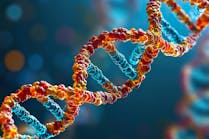In a study published in Nature, researchers show that vitamin K confers robust anti-ferroptotic activity via its reduced form, VKH2.
They further demonstrate that the previously recognized ferroptosis suppressor FSP1 is the vitamin K reductase that sustains a warfarin-insensitive non-canonical vitamin K cycle that suppresses ferroptosis by maintaining VKH2 at the expense of NAD(P)H to prevent lipid peroxidation. Furthermore, their data unveil FSP1 as the antidotal enzyme overcoming warfarin poisoning. Phylloquinone and menaquinone are electron carriers used in plants and bacteria, respectively, whereas eukaryotes use ubiquinone.
FSP1 thus reduces both of the electron transfer quinones, generating RTAs. Considering the evolution of life, when environmental oxygen concentrations increased after the great oxidation event in primordial Earth, it appears that menaquinone was substituted by ubiquinone as an electron carrier owing to its higher redox potential and increased abundance compared with vitamin K35. Since ferroptosis is an evolutionarily conserved cell death mechanism in diverse species ranging from prokaryotes and plants to mammals36, their findings suggest that vitamin K might be the most ancient type of naturally occurring anti-ferroptotic quinones.





